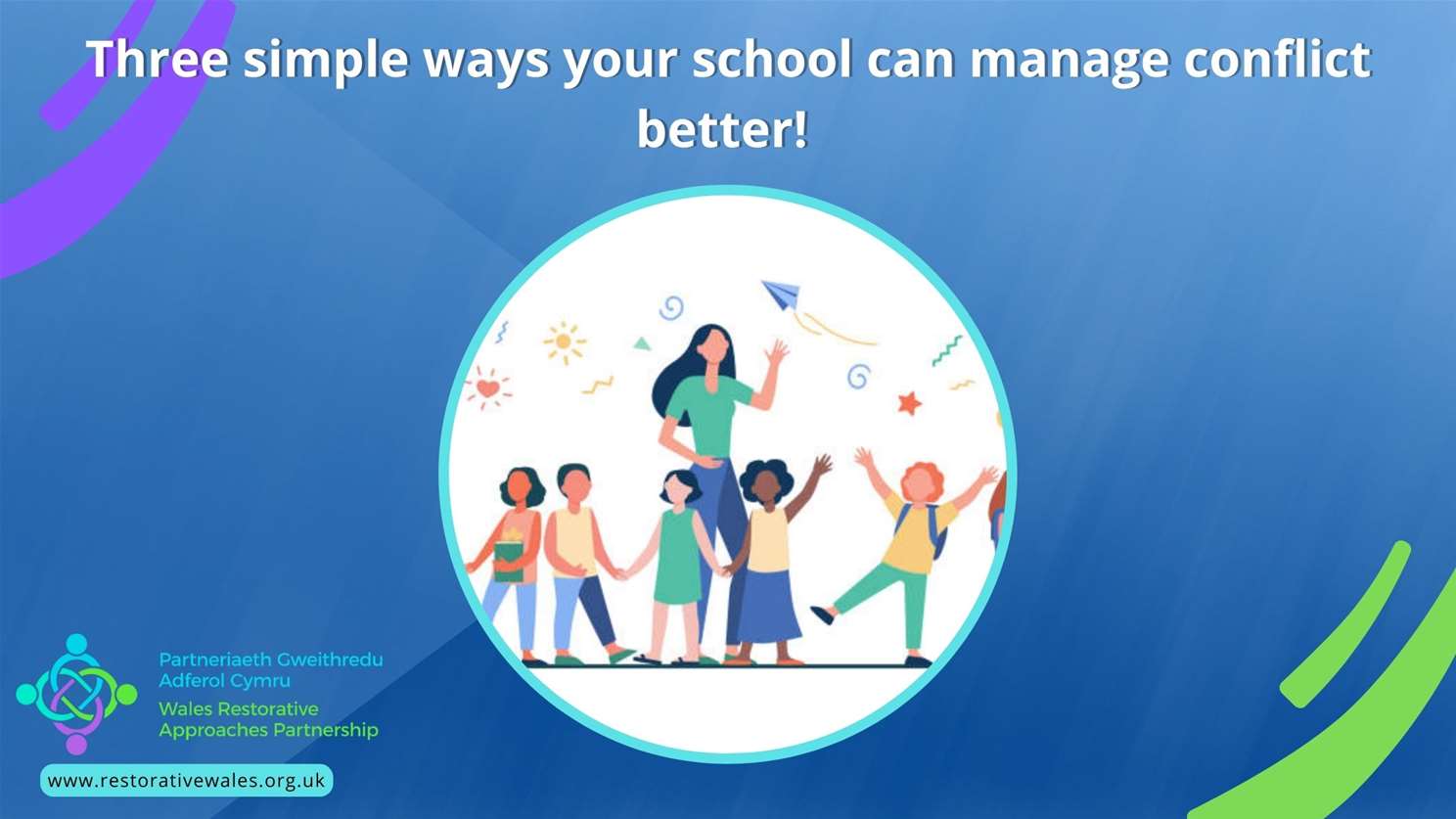New year, new start. If you’re like me, having a new start, however arbitrary, gives me the feeling that I can do things better this time. And this is especially true when it comes to managing conflict.
How many of you, after having conflict with a pupil, think “It will be better tomorrow”.
But if nothing changes, it can be difficult for it to be better tomorrow. Conflict is uncomfortable for most people, and we are rarely taught effective ways to manage it, whether personally or as a whole school.
So here are three tips that can help:
- Believe that behind every action is positive intent for the person doing it.
I know that some of you will disagree with this statement. It’s not meant to be scientifically true. I don’t know if it is or isn’t for that matter. But taking the view that it is true will help you see past the behaviour you do not like and be more compassionate to what they were trying to achieve.
If a pupil swears at you, maybe they were trying to gain control, create space, and look good in front of friends? None of those things are bad, just how they went about achieving it is.
If a pupil hits someone, maybe they were trying to balance a wrong (they could have been hurt first), maybe they were trying to regulate their own emotions, maybe they were defending their friend. None of those are bad things, but it doesn’t mean we accept their choice of behaviour.
What I found is it keeps me calmer when dealing with the issue. If I’m less frustrated, I will be clearer and communicate more effectively with the pupil.
- Don’t use “WHY?”
“Why did you do that Jimmy!!”. Well that’s a hard question to answer for many pupils. And so you’ll probably get a shrug or “Dunno”. It also is laced with judgement and blame, and most pupils will get defensive.
Instead ask “What happened”?
Even if you saw what happened, still start with it. It shows you haven’t made up your mind and are willing to listen. It promotes a more honest conversation. Children open up more when they feel they will be listened to, even when they are in the wrong.
- Tell yourself “It’s not my job to tell them off, it’s my job to teach them”
Humans don’t really like being told off. Even when they know they are in the wrong, it doesn’t have the best impact. I know some readers may think that I’m advocating for letting children get away with it, but I am not. Disciplining children is important. Discipline is to teach . You can teach with clear boundaries, and high challenge, but if that’s all you offer, most children will ignore you. You also need to balance the high challenge with compassion, understanding, respect and support. I like to think of it as “Warm Discipline”. Clear communication of boundaries, rules, and expectations are a must, but you don’t shout it at them. And you don’t belittle them until they get it under the guise of “I’m teaching them a lesson” or “I’m preparing them for the real world”. All that does is continue the cycle of adults not actually teaching children to manage their emotions and behaviours.
If you are interested in how to do this as a whole school, get in touch with us!




